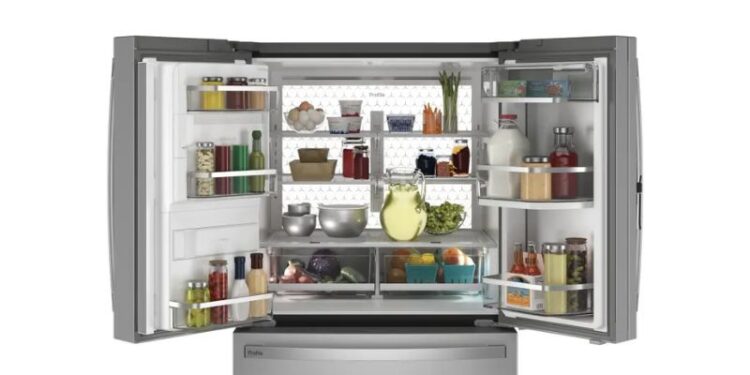Commercial refrigeration plays a vital role in the food industry, ensuring the safety and freshness of perishable products. However, purchasing and maintaining commercial refrigeration units can be a significant expense for businesses. This is where leasing commercial refrigeration becomes an attractive option. Leasing allows businesses to access high-quality refrigeration equipment without the burden of upfront costs and ongoing maintenance. In this article, we will explore “What is the Average Cost of Leasing Commercial Refrigeration?”, providing valuable insights for businesses in need of refrigeration solutions.
What is the Average Cost of Leasing Commercial Refrigeration?
When it comes to leasing commercial refrigeration, several factors influence the average cost. Understanding these factors can help businesses make informed decisions based on their specific needs and budget. Let’s dive into the key cost factors:
- Size and Capacity: The size and capacity of the refrigeration unit are significant determinants of the leasing cost. Larger units with higher storage capacities generally come at a higher price point.
- Type of Refrigeration Unit: There are various types of commercial refrigeration units available, such as walk-in coolers, reach-in refrigerators, display cases, and refrigerated prep tables. Each type has its own cost considerations, with walk-in coolers typically being more expensive due to their size and capabilities.
- Lease Duration: The duration of the lease agreement can impact the average cost. Longer lease terms often result in lower monthly payments, while shorter leases may come with higher monthly costs.
- Additional Features: Certain additional features and functionalities, such as temperature control systems, energy efficiency upgrades, and specialized storage compartments, can increase the cost of leasing commercial refrigeration.
- Location: The geographical location of the business can also affect the average cost. Higher-demand areas or regions with higher living costs may have slightly higher leasing rates.
- Leasing Company: Different leasing companies offer varying pricing structures and terms. It’s essential to compare quotes from multiple providers to find the most competitive rates.
What is the Average Cost of Leasing Commercial Refrigeration? – Estimating the Costs
To give you a better understanding of the average cost of leasing commercial refrigeration, let’s break it down by specific types of refrigeration units commonly used in the industry:
Walk-in Coolers
Walk-in coolers are spacious units designed to store large quantities of perishable items. They are commonly used in restaurants, grocery stores, and food distribution centers. The average cost of leasing a walk-in cooler can range from $200 to $800 per month, depending on the factors mentioned earlier. Here is a breakdown of estimated costs based on size:
- Small walk-in cooler (6’x6′): $200 – $400 per month
- Medium walk-in cooler (8’x10′): $400 – $600 per month
- Large walk-in cooler (10’x20′): $600 – $800 per month
Reach-in Refrigerators
Reach-in refrigerators are compact units that provide easy access to stored items. They are commonly found in commercial kitchens, convenience stores, and cafes. The average monthly cost of leasing a reach-in refrigerator ranges from $50 to $200. However, the specific price depends on factors such as size, energy efficiency, and additional features.
Display Cases
Display cases are refrigerated units designed to showcase products while keeping them at optimal temperatures. They are widely used in supermarkets, delis, and bakeries. The average monthly cost of leasing a display case can vary from $100 to $400, depending on the size, design, and energy efficiency.
Refrigerated Prep Tables
Refrigerated prep tables provide a convenient workspace for food preparation while offering refrigeration capabilities. They are commonly used in restaurants, sandwich shops, and pizza parlors. The average monthly cost of leasing a refrigerated prep table ranges from $100 to $300, depending on the size and features.
Frequently Asked Questions
Q: What are the advantages of leasing commercial refrigeration?
- Leasing allows businesses to access high-quality refrigeration equipment without the burden of upfront costs.
- Businesses can avoid the expenses associated with ongoing maintenance and repairs.
- Leasing provides flexibility, allowing businesses to upgrade to newer models as technology advances.
- Leasing agreements often include additional services such as installation and equipment maintenance.
Q: Are there any hidden costs associated with leasing commercial refrigeration?
No, leasing agreements should be transparent about all costs involved. However, it’s crucial to carefully review the terms and conditions of the lease to ensure there are no unexpected expenses.
Q: Can I negotiate the leasing cost?
Yes, it’s often possible to negotiate the leasing cost with the leasing company. Comparing quotes from multiple providers can give you leverage in negotiations.
Q: Is leasing or buying commercial refrigeration more cost-effective in the long run?
The answer depends on various factors, such as the business’s financial situation, long-term plans, and equipment requirements. Leasing is generally more cost-effective for businesses that prefer lower upfront costs and flexibility.
Q: Can I lease commercial refrigeration equipment with an option to buy?
Yes, some leasing companies offer lease-to-own options, allowing businesses to eventually own the equipment after fulfilling the lease agreement.
Q: What happens if the leased equipment breaks down?
Most leasing agreements include provisions for equipment repairs and maintenance. The leasing company is typically responsible for ensuring that the leased equipment remains in good working condition.
Conclusion
Leasing commercial refrigeration equipment can be a smart financial decision for businesses in the food industry. By understanding the average cost and key factors influencing pricing, businesses can make informed choices that align with their budget and requirements.
Remember to compare quotes from different leasing companies and carefully review the terms and conditions before signing any agreements. With the flexibility and convenience offered by leasing, businesses can ensure the freshness and safety of their perishable products while keeping costs under control.


More delight pieces like this would create the web better. http://www.dbgjjs.com/home.php?mod=space&uid=533013